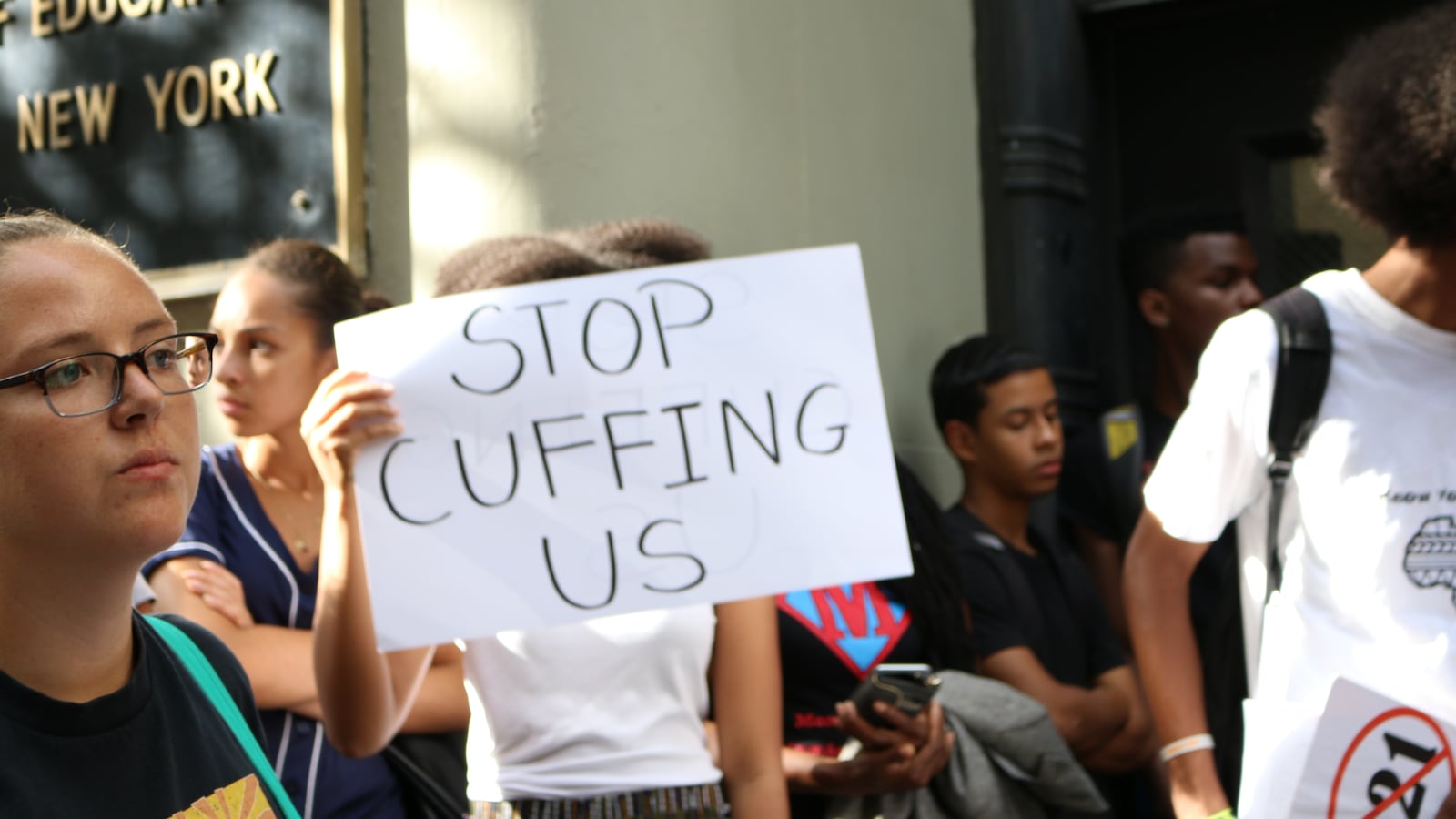New York State’s practice of charging all 16- and 17-year olds as adults in the criminal justice system could finally end this year, as both houses of the legislature and the governor are tentatively supporting a change.
The Republican-led Senate included a provision to support raising the age of criminal responsibility in its budget proposal that passed Wednesday. The Independent Democratic Conference, a group of eight lawmakers who collaborate with Republicans in the Senate, has rallied to “Raise the Age.”
New York is one of only two states that automatically treats 16- and 17-year olds as adults in the criminal justice system, according to Raise the Age, a coalition of community organizations. That means holding teens in adult jails after arrest, trying them in adult court and sending them to adult prisons if convicted — potentially leaving teens with a criminal record.
“There are hundreds of people involved in the campaign, spreading information. That helps us better understand why this is good not just for the young people, but for public safety as well,” said Naomi Post, executive director of the Children’s Defense Fund of New York state, one of the organizations leading the Raise the Age campaign. “I think the amplification of voices has really had an impact on making the issue more salient.”
The state Assembly, which passed its own budget proposal on Wednesday, has long been supportive of raising the age of criminal responsibility, and Gov. Andrew Cuomo has also included provisions to do so in previous years’ budget proposals.
But Tami Steckler, attorney-in-charge of the juvenile rights practice at the Legal Aid Society, isn’t ready to declare victory. She said it’s important that the final bill include wide protections for young people — regardless of the crime they are charged with — including requirements that all teens be held in juvenile facilities and that their cases be handled under family court law.
“You can reduce recidivism and improve public safety by treating children as children, because that’s what works best,” Steckler said. “What happens now is meaningful because it’s really hard to get more later.”

